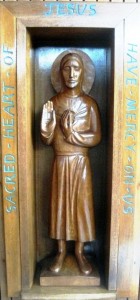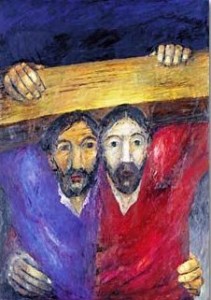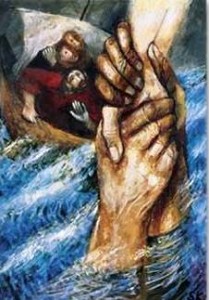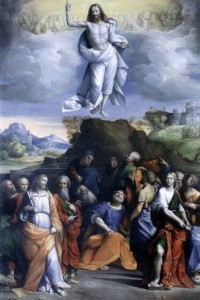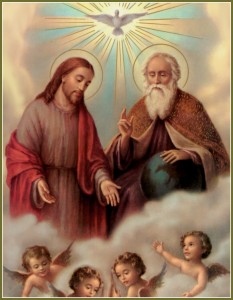The Heart of Jesus is beating, today in me, when I try to act as he would in my circumstances.
For in sacrifice you take no delight, burnt offering from me you would refuse, my sacrifice, a contrite spirit. A humbled contrite heart you will not spurn.
Psalm 50; 16 – 17
Religion that is pure and undefiled before God, the Father, is this: to care for orphans and widows in their distress, and to keep oneself unstained by the world.
James 1: 27
He has told you, O man, what is good; and what does the Lord require of you but to do justice, and to love kindness, and to walk humbly with your God?
Micah 6:8
As life goes by, the question arises in my mind about true religion. What is it?
The Sacred Heart Statue in our Church.
(My favourite statue of this great mystery as so many others are gaudy and unrealistic)
June is always dedicated to “The Heart of Jesus” and this emphasises the importance of man and woman. The feast of the Heart of Jesus emphasises the humanity of the Word of God, and is the gateway to let Jesus be alive and well in me. I would like to explain.
There is no question about it: I have changed a bit and I thank God for it. We sing a hymn to the Holy Spirit at Pentecost time asking the Holy Spirit to fall afresh on me, and then, melt me, mould me, fill me and use me. I think He has a lot of work to do on this particular human being, the person of Fr. Jonathan.
Sometimes there is a need to give up a Religious Duty for a person in need.
Duty means a lot to me, and I always see the need to do my duty. But it can be out of proportion. For instance when the time for saying our prayers together comes, I want to be there on time. When I celebrate Mass, I want to do it well, with dignity, properly. If guests come, I must get ready for them and look after them properly. It is my duty – but, sometimes, it is impossible to achieve, because some person needs me, for them. To illustrate:
Simon of Cyrene helps the tired and failing Jesus to carry his cross
One day I thought it was my duty to clear out the pile of two years of newspapers that had accumulated making a great mess in one of our rooms. While I was hard at work, somebody needed to talk to me about a pastoral matter, and I told the person; “Can’t you see I am busy!” It was typical of putting duty before the love that God expects of me in the present moment and, though that happened about 24 years ago, it is still vivid in my memory as a learning point in my life; and I still struggle with this. Recently, when I was in the middle of doing a lot of things to prepare for a Governors’ meeting, somebody wanted me to send them an email. It meant stopping what I was doing and giving my attention to that small issue. I felt resentful, and wished the other would go away! However, I did the email though and felt the happier. Another occasion was when I had not said my prayers – a daily duty – but I had a chance to talk to somebody who had been facing death, and might reach that point. I failed in my prayers, but spent real quality time with my friend. I felt guilty at the failure of duty. Each day I am called to die to self, if I want to be a disciple of Jesus. Another example: I much prefer to spend time with somebody I like, and feel happy to be with, but I need to discipline myself not to let that encounter happen until the right moment arrives, and can then act in the right way, with the right motivation. If I do the right thing, I always feel the better; I feel the love that is that of the heart of Jesus – his way of acting.
Jesus helps Peter from sinking into the water
What gets me thinking is that nobody “sees” God. We can see “creation and human beings”. St John the evangelist made a good point when he wrote: “If anyone says, “I love God,” and hates his brother, he is a liar; for he who does not love his brother whom he has seen cannot love God whom he has not seen.” (1 John 4: 20) The fact that God became man is fundamental to this thought process because Jesus identifies himself with each human being; and in a particular way with his disciples, or his apostles and their envoys or any person. When the later St. Paul was thrown from his horse on the way to Damascus he heard Jesus saying to him the famous words: “Saul, Saul, why are you persecuting me?” (Acts 9: 4).
It is the human being who is fundamentally important, not duties or the rituals of Religious Observances. All religion makes sense as does the whole of life, in functions of supporting and furthering human beings and being in a loving relationship with them. I was very struck one day visiting a Carmelite women’s community, and as I was about to leave I met the Reverend Mother. She wanted to talk to me, and I with her, but the problem was evening prayer that was also about to begin. Without any hesitation she took me to a small parlour and let the other sisters get on with the psalm singing and we chatted over a cup of tea. It was what was necessary at that moment; a concern for me rather than the ritual of the prayers over-riding everything.
It is not that the ritual should not be done well, and reverently; Our Lord put it very well however: “The Sabbath was made for man, not man for the Sabbath.” (Mark 2: 27)
The invitation that Jesus gives us is always to put caring for human beings first: and by doing our best to live that out, which is no easy task, as there is no human being to be excluded. I cannot just care for those who are my friends and agree with me, and not include those who I find distasteful and who may not agree with me.
Our Lord did say “You shall love the Lord your God with all your heart and with all your soul and with all your strength and with all your mind,” and then immediately added the phrase “and your neighbour as yourself.” (Luke 10: 27) By always loving the neighbour I do see, I will grow to love God first and foremost. Prayer and time with him mean more, and more, as he, too, is a person to be loved, whether as Father, Son or Holy Spirit.
The Prodigal Father welcomes his son
The Our Father has the same message of course of genuine relationships being the basis of God truly loving and forgiving us. “Forgive us our trespasses as we forgive those who trespass against us.” (Mt 6: 12)
Our religion in other words is rather different to that which we imagine. If it makes sense then it will be as normal as living and breathing. It is not something apart from life, but simply integral to it. Going to Church and praying is not apart from life, just another moment of it. Even the highest point of union with God, the Eucharist, is not confined to a special half hour, or hour, in Church. Actually the Eucharist continues each moment of the day as God and I are united in all that happens.
This comes back to the Sacred Heart of Jesus. By our union in Christ Jesus through the identification we have with him in Baptism, re-enforced through Holy Communion and the other sacraments and in our union in living the Word of God each day and each moment of the day, we glorify God. He, the Father, has identified Jesus his Son with me and you, dear reader, and we can think in his way of thinking, act in the way he would act, love in the way he would love in our own times. We are “In Christ” as Paul repeats 165 times in his letters. Now is the time to bow our heads and believe in this closeness of each one of us, personally, and all of us, together, as Christ Jesus himself dwells in us. I think of my efforts to serve and care for all, as well as possible; it is a constant but rewarding struggle, and I suspect this is what Jesus did, with his mother Mary, when they were living on this wonderful earth 2,000 years ago. In fact I would say they are doing this again today, when the Holy Spirit is powerfully at work even on stubborn me, melting me, moulding me, living in me and, thank God, using me, when I manage to act as Jesus would in my place.
Father Jonathan
